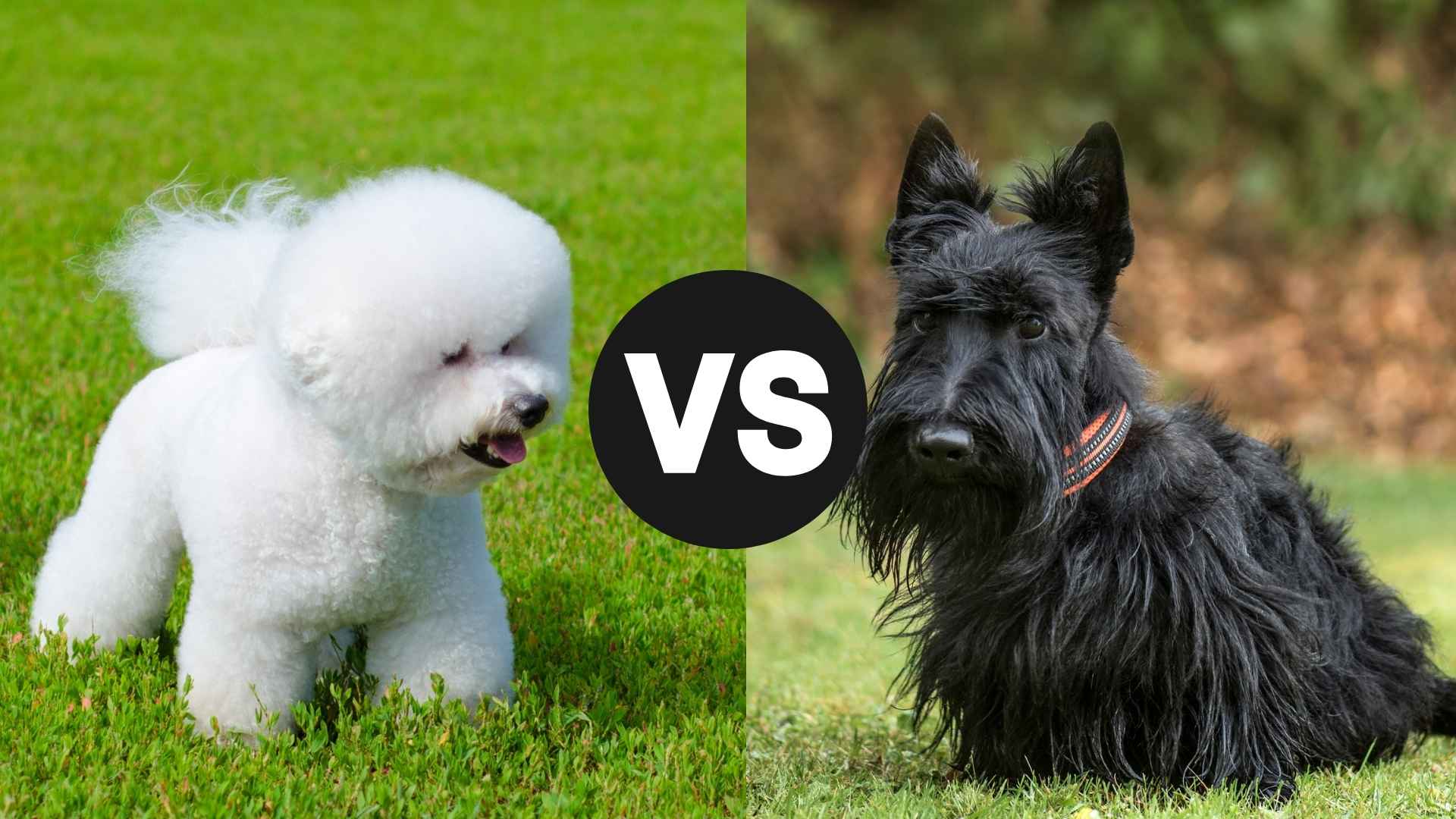Choosing a dog breed is an exciting yet tricky decision. With so many wonderful dog breeds to choose from, how do you know which one is right for you? If you’re torn between the fluffy and friendly Bichon Frise and the independent yet affectionate Scottish Terrier, this blog is for you.
Whether you’re a first-time dog owner or you’re adding to your family of pets, we’ll dive deep into the comparison between these two breeds to help you make the best decision. So, let’s embark on this journey of Bichon Frise vs. Scottish Terrier!
Bichon Frise vs. Scottish Terrier
Bichon Frise vs. Scottish Terrier: Physical Size and Weight
According to Purina, in terms of physical size, the Bichon Frise is a small breed, standing around 9.5 to 11.5 inches tall and weighing between 12 to 18 pounds. Their compact size and fluffy coat make them a popular choice for people living in apartments or smaller homes.
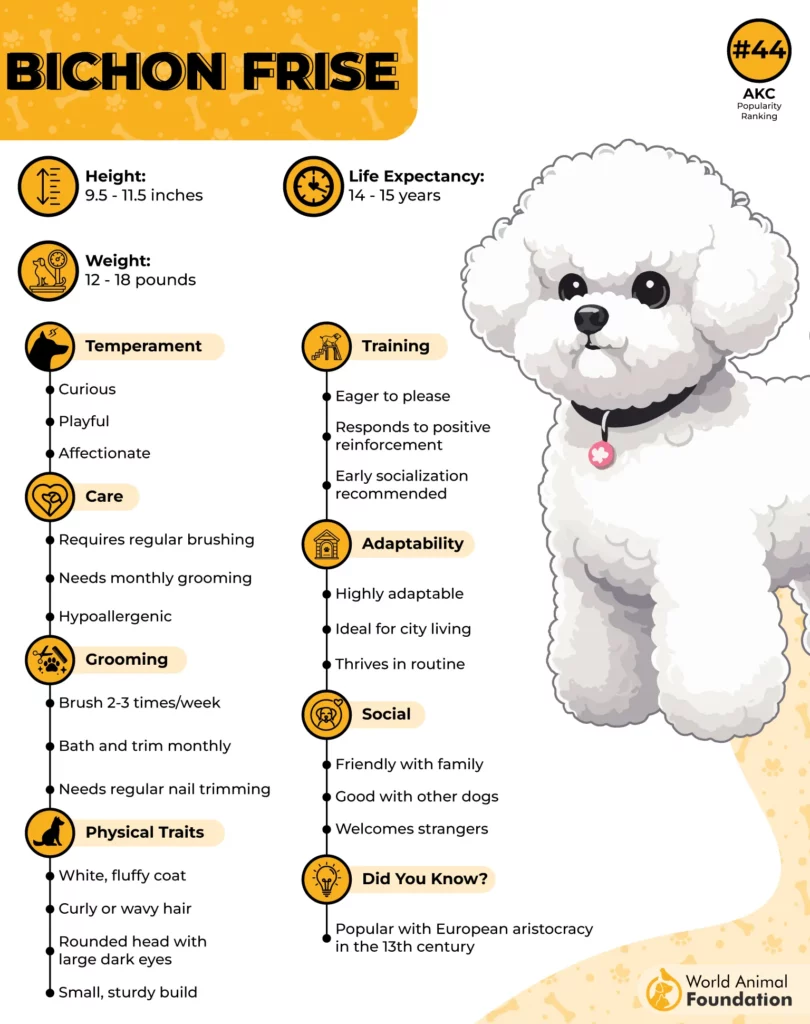
Despite their small stature, Bichon Frises have a sturdy build and are known for being energetic, making them ideal for families with active lifestyles.
According to Hillspet, the Scottish Terrier, on the other hand, is slightly more muscular and heavier. Standing about 10 inches tall, Scotties typically weigh between 18 to 22 pounds. Their solid build and wiry coat give them a more substantial appearance. Scottish Terriers also have a very distinct look with their bushy eyebrows and upright ears, making them stand out among other small dog breeds.
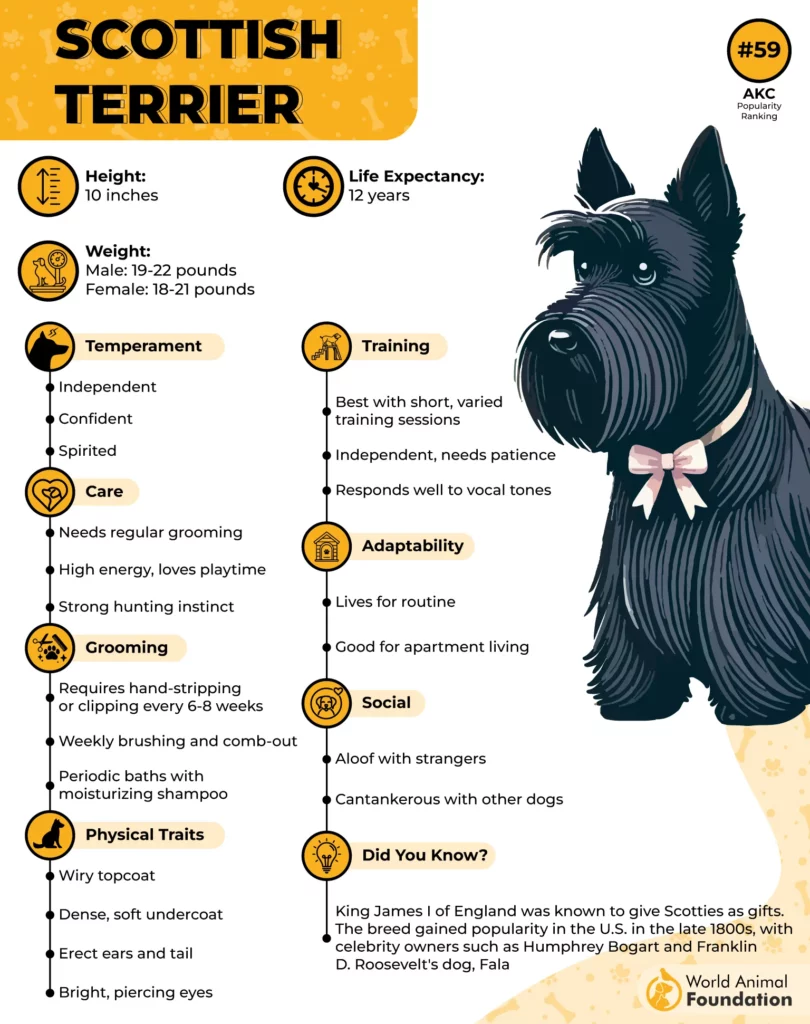
While both dogs are small, the Bichon Frise has a lighter, more delicate build, making it easier to carry around or take on trips. The Scottish Terrier, with its more robust frame, has a more “sturdy” presence. If you’re looking for a dog that’s a bit easier to handle and travel with, the Bichon Frise may be a better option. However, if you prefer a dog with more substance, the Scottish Terrier could appeal to you.
Keep in mind that both breeds have specific grooming needs due to their unique coats. The Bichon Frise requires regular trimming and care to maintain its soft, curly coat, while the Scottish Terrier’s wiry coat needs regular hand-stripping or grooming to stay in top condition.
Bichon Frise vs. Scottish Terrier: Learning Ability and Intelligence
When it comes to intelligence and learning ability, the Bichon Frise tends to excel in training sessions. Known for their eager-to-please attitude, Bichon Frises love to learn new tricks, especially when there’s a reward involved. They are quick to pick up commands and are generally well-behaved, making them an excellent choice for first-time dog owners or families with young children.
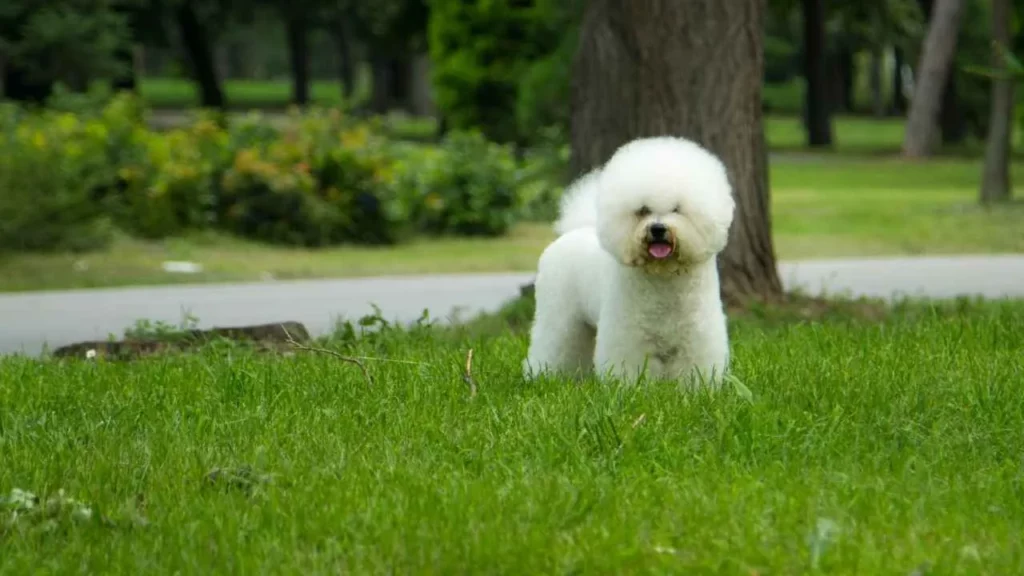
However, while the Bichon Frise is generally easy to train, they do require consistency. These dogs thrive on positive reinforcement and can sometimes be a little mischievous if they sense a lack of structure.
Their intelligence makes them very adaptable to different training techniques, and with patience, you can teach them almost anything. Socializing them early is also important to ensure they grow up to be friendly with both humans and other pets.
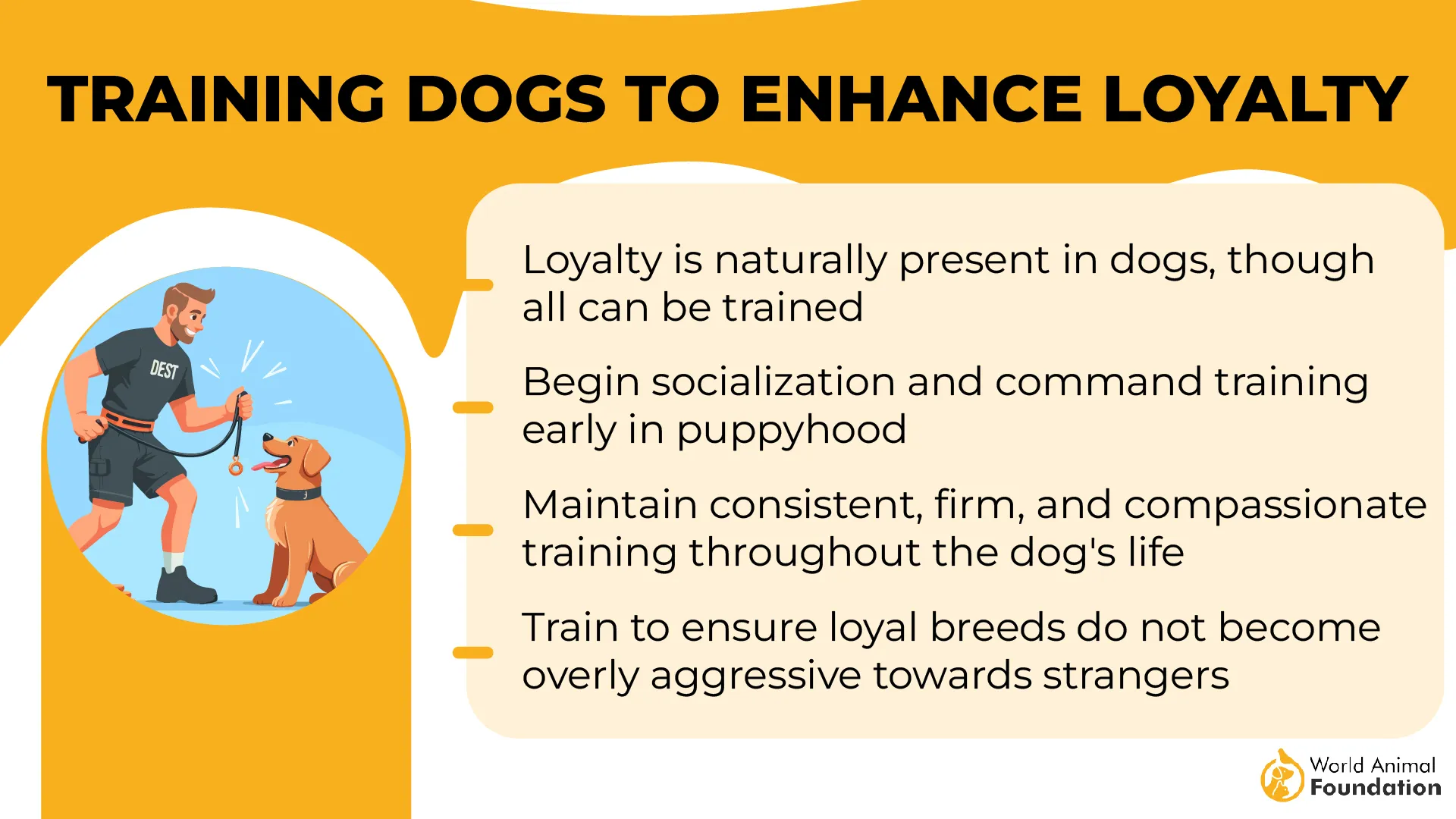
In comparison, the Scottish Terrier is also intelligent but has a more independent streak. Scotties are known to be a bit stubborn and may not always respond immediately to commands. Their independent nature can sometimes make them seem less eager to please, but once they learn something, they remember it well. Training a Scottish Terrier requires patience, consistency, and a firm hand, but with the right approach, they can be just as obedient as the Bichon Frise.
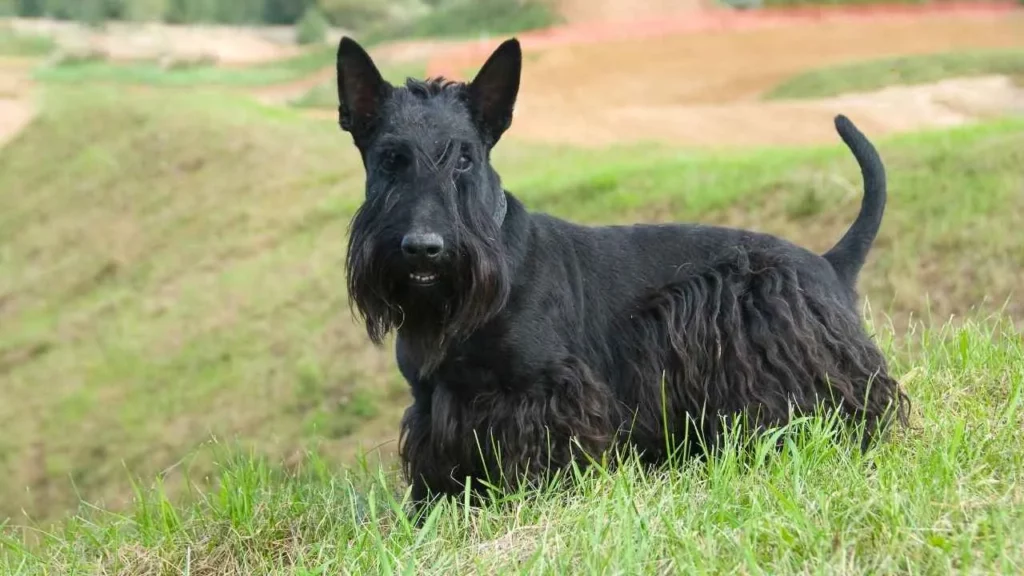
Early socialization is especially important for the Scottish Terrier to ensure they get along with other pets and strangers. Despite their strong-willed nature, Scotties are loyal and protective of their family, making them excellent watchdogs. Whether you choose the easy-going Bichon Frise or the more independent Scottish Terrier, both breeds can make fantastic pets with the right training.
Bichon Frise vs. Scottish Terrier: Energy Levels and Playfulness
When it comes to energy levels, the Bichon Frise is a playful and lively dog, always ready to jump into action. Whether it’s chasing a ball or running around the yard, they love to engage in active play. Their high energy and enthusiasm for fun make them great companions for families with young children. They also get along well with other dogs and pets, including cats, and often enjoy playing with them as well.
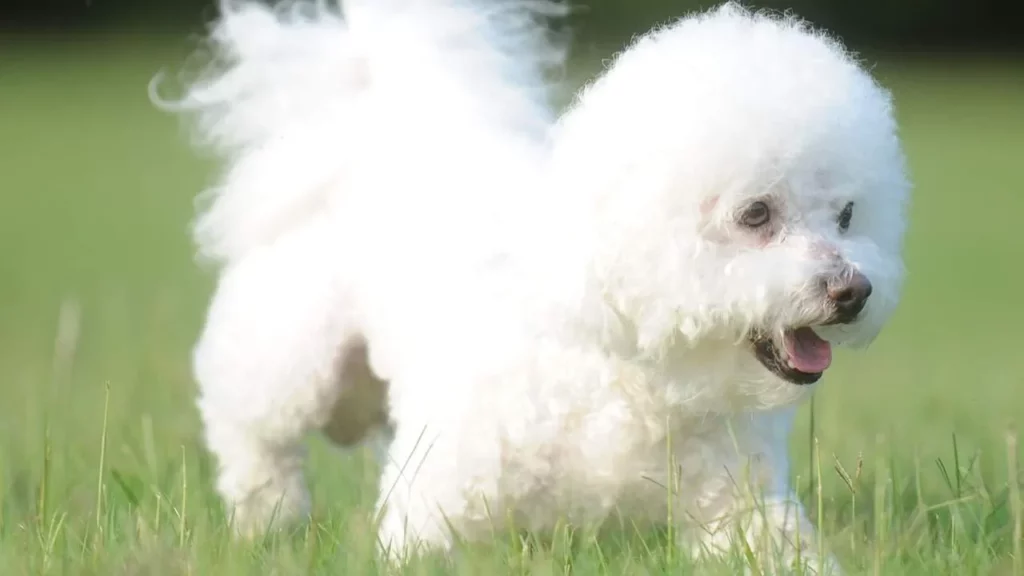
The Scottish Terrier, in contrast, is more selective with its energy. While Scotties can certainly enjoy a good play session, they tend to be a bit more reserved and independent. They have bursts of energy, but they’re not as constantly active as the Bichon Frise.
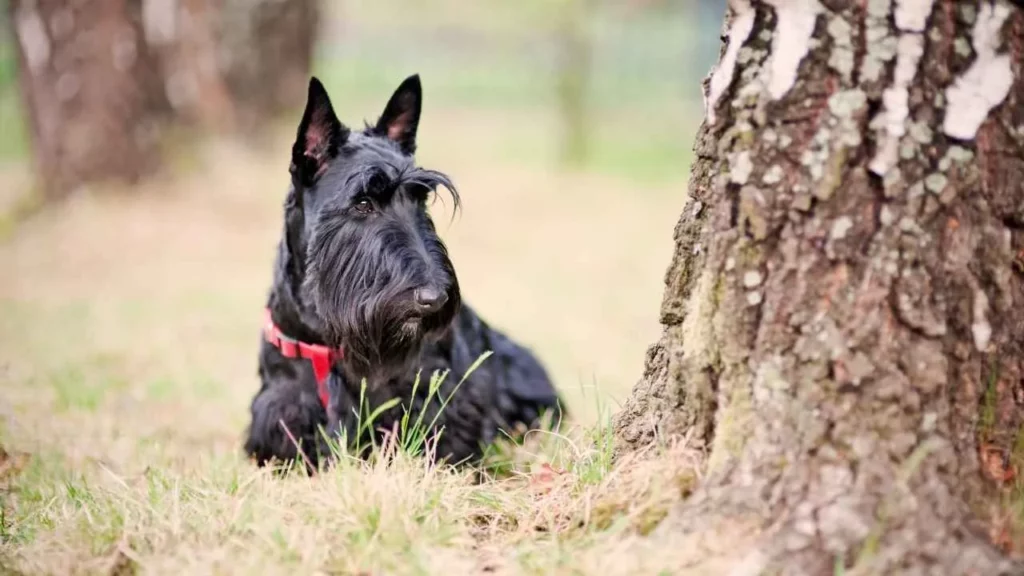
Scotties enjoy playtime but are often content to lounge around after their activities. Their energy levels are a bit more moderate, which can make them suitable for families or individuals who prefer a dog that is less demanding in terms of exercise.
It’s important to consider your activity level when choosing between these two breeds. If you’re an active person who enjoys outdoor activities and wants a dog that can keep up, the Bichon Frise is a great choice. On the other hand, if you prefer a dog with a more relaxed attitude toward play and exercise, the Scottish Terrier might be more suited to your lifestyle.
Both breeds need regular exercise, but the Bichon Frise will likely require more daily playtime to burn off its energy. On the other hand, the Scottish Terrier is content with a few brisk walks and play sessions. If you’re looking for a low-maintenance dog in terms of activity levels, the Scottish Terrier is a better fit, but if you’re after a more energetic dog, the Bichon Frise is your match.
Bichon Frise vs. Scottish Terrier: Adaptability and Self-Reliance
Adaptability is another important factor to consider when choosing between a Bichon Frise and a Scottish Terrier. The Bichon Frise is generally very adaptable to various living situations, whether it’s a small apartment or a larger home.
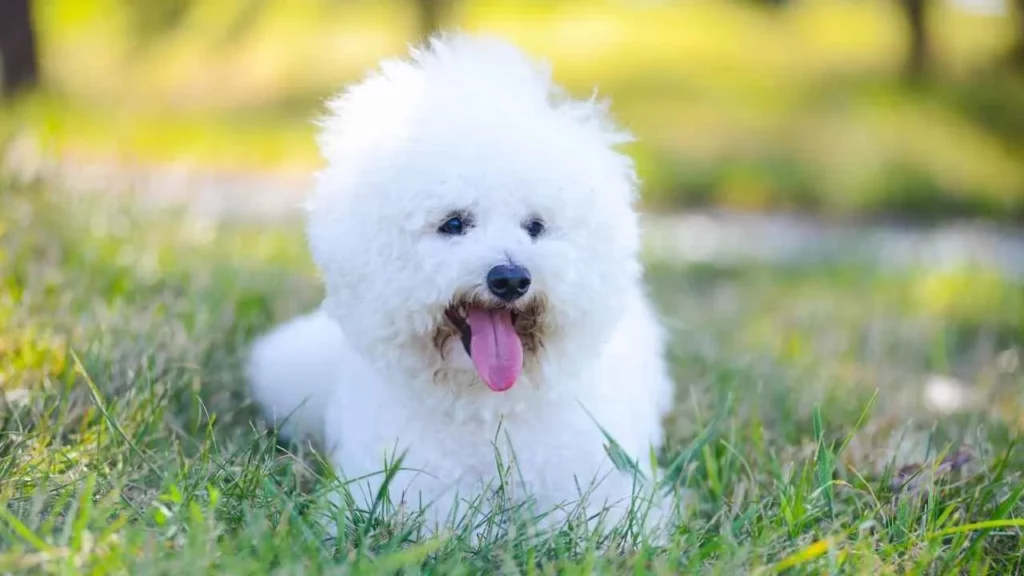
They love being with people and tend to thrive in environments where they’re the center of attention. However, they can also develop separation anxiety if left alone for long periods, so they may not be the best option for someone with a busy schedule.
In contrast, the Scottish Terrier is much more self-reliant. They are independent dogs who don’t mind spending time alone, as long as they have access to their familiar surroundings.
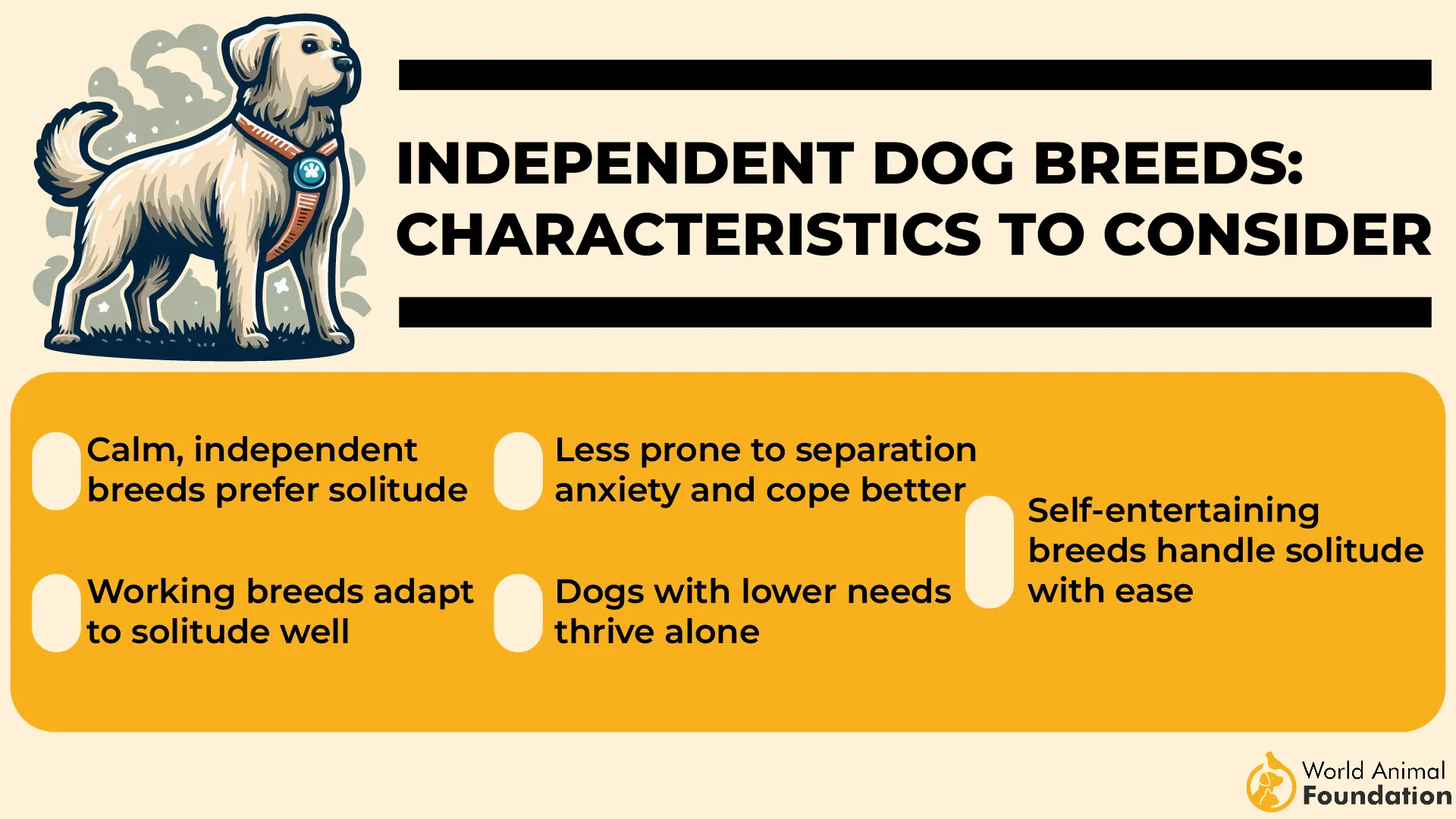
Scotties are known for their strong personalities and can entertain themselves when needed, though they still enjoy companionship. They are a bit more suited to owners who are gone for longer periods of time or those who don’t need constant interaction with their pet.
Both breeds are capable of adapting to different living environments, but their self-reliance is what sets them apart. The Bichon Frise will likely need more attention and care, while the Scottish Terrier is more content to have some time to themselves. It’s important to think about how much time you can devote to a dog’s companionship needs before making your choice.
The Bichon Frise thrives in social settings and may struggle in solitude, whereas the Scottish Terrier is much more independent. If you’re someone who wants a dog that can be left alone occasionally without getting anxious, the Scottish Terrier might be a better fit for you. If you want a dog that will always want to be by your side, the Bichon Frise could be your best companion.
Bichon Frise vs. Scottish Terrier: Bite Behavior and Traits
Both the Bichon Frise and the Scottish Terrier are known for being affectionate, but their bite behavior can differ due to their personalities.
The Bichon Frise is generally known for being gentle, with a soft bite. They are unlikely to bite unless they are frightened or provoked. They typically get along well with children and other animals, including cats and other pets, thanks to their friendly and sociable nature. Bichon Frises don’t often exhibit aggressive behavior, making them ideal for families looking for a dog that will bond well with their children.
On the other hand, the Scottish Terrier tends to be a bit more protective and territorial. While they are loyal and loving toward their owners, Scotties may show more aggressive behavior if they feel their space is invaded. This can include barking or even showing their teeth. However, proper socialization from an early age can help curb this behavior and teach them when it’s appropriate to be protective.
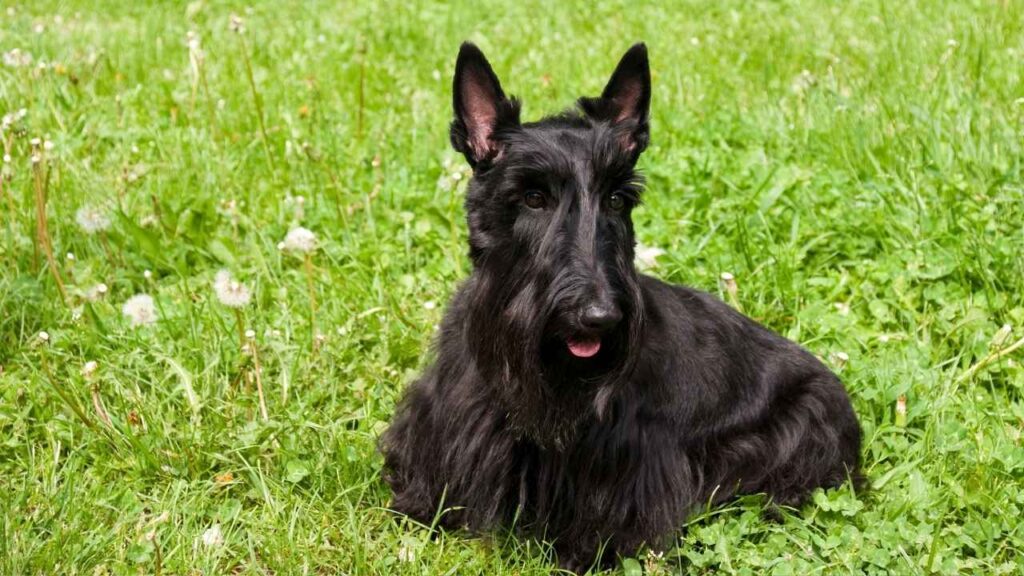
Both breeds have the potential to show a mild biting reaction if they feel threatened, but the Bichon Frise is generally more tolerant and less prone to aggressive behavior. The Scottish Terrier may require more attention to training and socialization to avoid biting incidents, especially when interacting with strangers or unfamiliar pets.
While both breeds are loving, the Bichon Frise’s gentle nature means they are less likely to display biting behavior. However, Scotties may require a bit more attention when it comes to teaching appropriate interactions with strangers or new pets.
Bichon Frise vs. Scottish Terrier: Health Considerations and Lifespan
When considering the health of both breeds, both the Bichon Frise and Scottish Terrier are generally healthy dogs. As per Purina, the lifespan of a Bichon Frise is around 14 to 15 years. Whereas it is around 11 to 13 years for a Scottish Terrier. However, each breed has its own set of potential health concerns that owners should be aware of.
Bichon Frises are prone to some common health issues, such as allergies, grooming-related skin problems, and obesity if not properly managed. Since they have a fluffy, curly coat, they may also suffer from hair mats that can irritate their skin if not groomed regularly. Keeping their coat trimmed and managing their diet is crucial for maintaining good health.

On the other hand, the Scottish Terrier is generally a hearty breed but can be prone to specific conditions, such as cancer, hip dysplasia, and even a condition called Scottie cramp that affects their gait. Regular vet visits and a healthy diet are essential for minimizing these risks. Additionally, like the Bichon Frise, Scotties require regular grooming to keep their wiry coat in top shape.
Both breeds have relatively similar life expectancies, but their health needs vary slightly. The Bichon Frise will require a bit more attention to coat care and maintaining a healthy weight, while the Scottish Terrier needs to be monitored for any signs of joint or genetic health issues. Either way, both breeds can live long, healthy lives with proper care.
Ultimately, whether you choose the Bichon Frise or the Scottish Terrier, or any other breed, ensuring they stay healthy through regular checkups, a good diet, and proper grooming will help ensure a long and happy life.
Conclusion
When choosing between a Bichon Frise dog and a Scottish Terrier, it all comes down to your lifestyle and preferences. The Bichon Frise, often celebrated by the Bichon Frise Club, is an affectionate, playful dog that thrives on social interaction, making it perfect for active families.
In contrast, the Scottish Terrier has a more independent, dignified nature, ideal for those who prefer a loyal but strong-willed dog. While the Bichon Frise responds well to positive rewards, the Scottish Terrier’s hunting instinct might require more consistent training. Both breeds need regular grooming, with the Bichon Frise needing more frequent care, unlike other dog breeds, due to its curly coat.
Ultimately, both breeds make wonderful companions. Let us know in the comments which breed you prefer and why!


